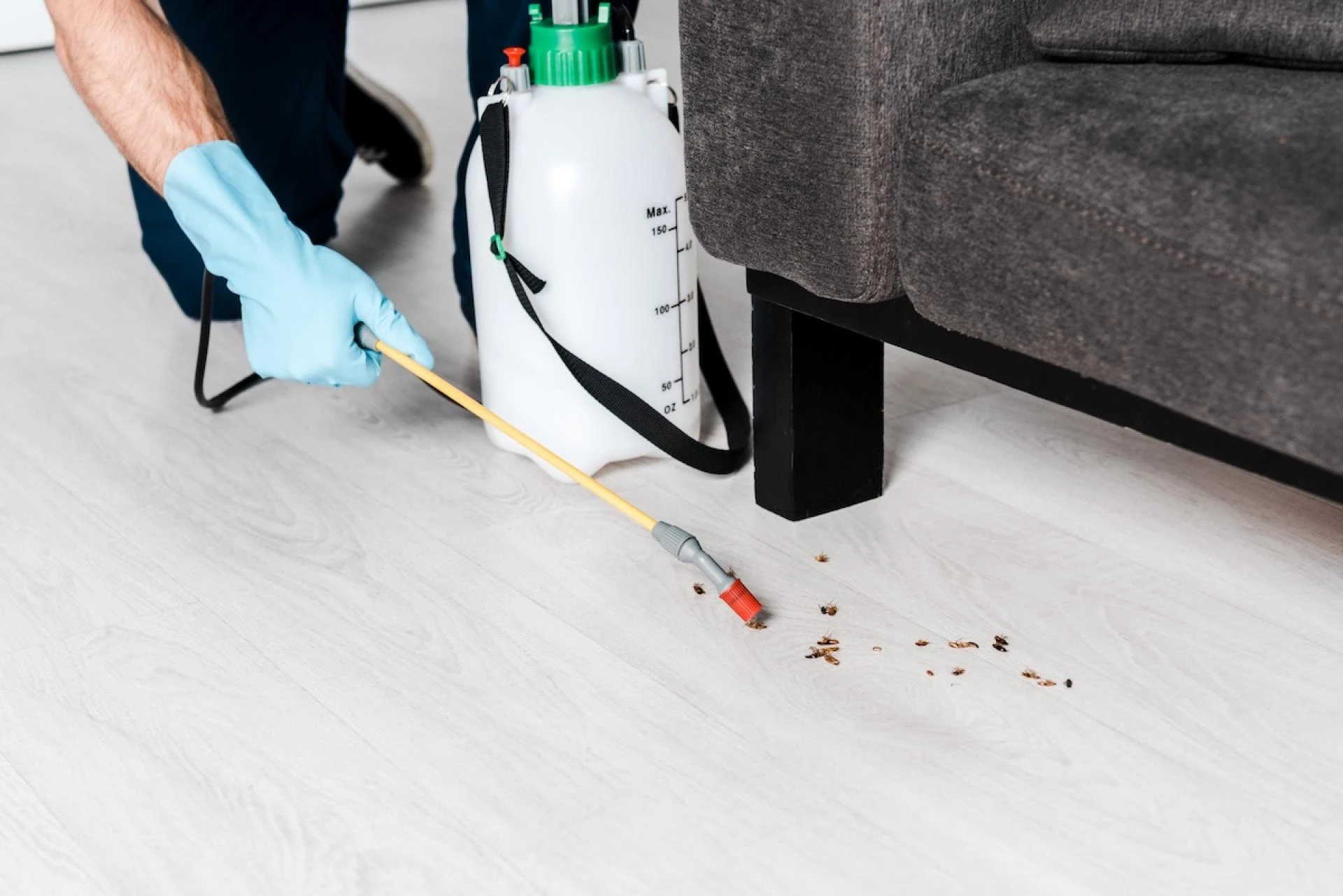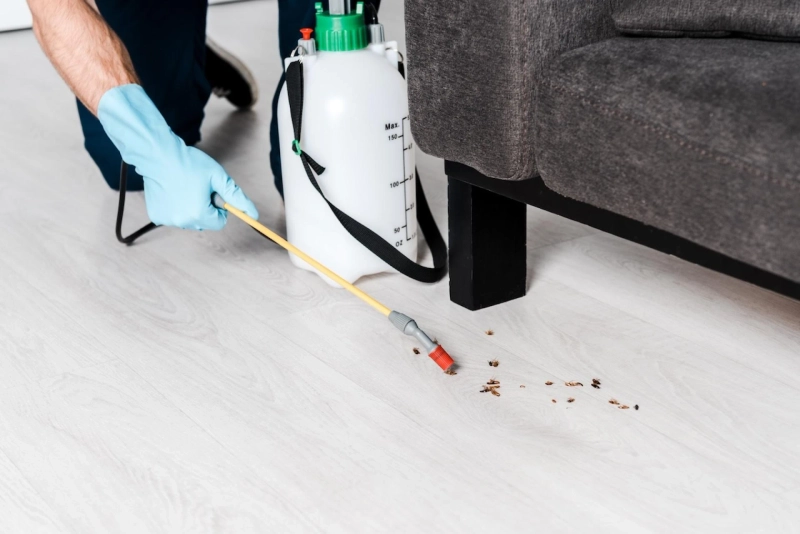Pests are a common nuisance in homes across Dubai, where the hot and humid climate creates the perfect breeding ground for insects and rodents. In an effort to manage infestations, homeowners often turn to tips shared by friends, online forums, or quick DIY hacks. While some advice may seem practical or harmless, many pest control beliefs are rooted in myths that can actually worsen the situation. Misunderstanding pest behavior and using ineffective methods may not only fail to eliminate the problem but could also put your home and health at risk. Let’s explore some of the most widespread pest control myths that might be doing more harm than good.

Myth 1: Clean Homes Don’t Get Pests
One of the most pervasive misconceptions is that pests only infest dirty or poorly maintained homes. While cleanliness does reduce the chances of attracting pests, it does not guarantee immunity. Pests seek out food, water, and shelter — and even the cleanest homes in Dubai can inadvertently provide all three. Ants, for example, can detect food particles as tiny as a grain of sugar, while cockroaches are known to inhabit even sanitized kitchens if they can find moisture and warmth. Termites, which are a major concern in Dubai due to the region's climate, often invade homes for the cellulose in wood, regardless of how tidy the space is. Believing that cleanliness alone will keep pests away may lead homeowners to overlook necessary preventive treatments and inspections.
Myth 2: DIY Sprays Are as Effective as Professional Treatment
Another myth that endangers homeowners is the belief that over-the-counter pest control sprays are just as good as professional extermination services. While these products can provide temporary relief, they rarely address the root cause of the infestation. Most DIY sprays only target visible pests, not the nests or breeding sites hidden behind walls or under floors. Moreover, improper use of chemicals can make the problem worse by dispersing pests to other areas of the home. In Dubai, where pest infestations like bed bugs, cockroaches, and rodents can spread quickly due to building designs and climate conditions, relying solely on DIY methods often results in repeated outbreaks. Professional pest control services use integrated approaches, including baiting, sealing entry points, and long-lasting treatments tailored to specific pests.
Myth 3: Ultrasonic Repellents Work for All Pests
Ultrasonic pest repellents have gained popularity in recent years, with companies claiming that high-frequency sound waves can drive pests away. However, there is limited scientific evidence supporting the effectiveness of these devices. While some pests may respond to certain frequencies, most become desensitized over time or simply move to quieter areas of the home. In places like Dubai, where cockroaches and rodents are common, ultrasonic devices are rarely sufficient as standalone solutions. Relying on them could delay necessary action, allowing infestations to grow unnoticed. A combination of physical barriers, chemical treatments, and sanitation is far more reliable than sound-based gadgets that promise quick fixes.
Myth 4: You’ll See Pests If You Have an Infestation
Many people assume that the absence of visible pests means their home is pest-free. Unfortunately, this is far from the truth. Most pests are nocturnal or hide in dark, inaccessible places like attics, behind walls, or under sinks. Termites, for instance, can silently damage a home for years before their presence becomes obvious through structural damage. Bed bugs, too, are expert hiders and often go undetected until their bites become frequent. In a densely populated and fast-developing city like Dubai, infestations can spread from unit to unit in apartment buildings, even if one home appears pest-free. Regular inspections and monitoring are essential, even in the absence of visible signs.
Myth 5: Cats and Other Pets Will Keep Rodents Away
Some homeowners believe that keeping a cat will prevent mice or rats from entering the house. While it’s true that some cats may hunt rodents, this is not a guaranteed or comprehensive solution. Rodents can reproduce rapidly and find hiding spots that cats cannot access. Furthermore, relying on a pet for pest control overlooks other necessary steps like sealing entry points, managing food storage, and conducting regular inspections. In Dubai’s residential complexes, where rodents can travel through pipes and utility lines, professional treatment is often the only way to fully resolve the issue. It’s important to remember that pest control is a strategic process, not a job for household pets.
Myth 6: Boiling Water or Vinegar Can Kill Ant Colonies
This myth is particularly common when dealing with ant infestations. Pouring boiling water or vinegar down an anthill may kill a few visible ants, but it does not reach the queen or destroy the colony’s deeper tunnels. As a result, the ants simply relocate and re-emerge elsewhere. Dubai’s sandy terrain allows ants to build elaborate underground networks, making it even harder to eliminate them with surface-level remedies. Targeting the entire colony — including the queen — requires baiting techniques that professionals are trained to apply. By trying homemade tricks, homeowners often end up wasting time and allowing infestations to grow worse.
Myth 7: Once Treated, Pests Won’t Return
Another damaging belief is that a single pest control treatment is enough to solve the problem permanently. In reality, pest control is not a one-time activity but an ongoing process. Environmental factors, building design, and changes in season can all lead to recurring infestations. In Dubai, the increase in humidity during summer months can bring a surge in insect activity, while construction work and landscaping may disturb nesting areas and drive pests indoors. Long-term pest control requires routine inspections, preventive measures, and periodic reapplications of treatment. Thinking of pest control as a one-time fix can leave your home vulnerable over time.
Myth 8: Natural Remedies Are Always Safe and Effective
While the appeal of “green” or natural pest control methods is understandable, they are not always effective or even safe when misused. Substances like peppermint oil, boric acid, or diatomaceous earth are sometimes touted as miracle solutions. However, they must be applied correctly and consistently to yield results. In some cases, they may not work at all against certain pests. Moreover, “natural” does not always mean non-toxic, especially in households with children or pets. Dubai regulations mandate that pest control companies use approved and safe substances, balancing effectiveness with health and environmental concerns. Instead of blindly following natural remedy trends, it’s best to consult a trained professional.
Myth 9: Pest Control Is Only Necessary When There’s a Problem
Preventive pest control is often overlooked until there’s an obvious infestation. This reactive approach can lead to more serious and costly issues. For instance, termites can cause irreversible structural damage, and a cockroach problem can rapidly escalate into a public health hazard. In a city like Dubai, where rapid urbanization often disrupts pest habitats, it’s important to stay ahead. Scheduling regular pest inspections and investing in preventive treatment helps protect not only your home but also your family’s well-being. Waiting until pests appear could mean dealing with a larger and more expensive crisis.
Conclusion
Pest control is an essential part of home maintenance, especially in a climate like Dubai’s. Believing in common myths can create a false sense of security and delay the right action. Whether it's assuming that a clean home is immune or depending on DIY tricks that target only the surface problem, misinformation can be dangerous. By understanding the realities of pest behavior and the limits of home remedies, homeowners can make informed decisions and take proactive steps. Consulting trained professionals, following preventive routines, and avoiding shortcuts will help ensure that your home remains safe, clean, and pest-free — now and in the long term.



